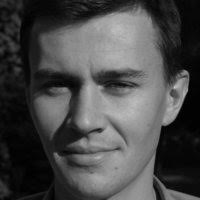Date/Time
Date(s) - 01/09/2025
7:00 pm - 9:00 pm
Categories
Summary: While most of us can’t trace our Polish ancestry back to the Middle Ages, we may nonetheless be curious about what life was like for our ancestors who lived during this time. In this lecture, Prof. Duma will discuss the results of research on the oldest periods of tribal organization and the formation of the Polish state (6th–12th centuries), based on the latest archaeological analysis. Archaeologists are currently using many new methods as part of interdisciplinary studies. DNA analysis is also commonly used. According to the latest knowledge, many older views regarding the cultural situation in the early Middle Ages in Poland have changed.
Presenter bio: Prof. Duma is an Assistant Professor at the Institute of Archaeology, University of Wrocław, Poland. His main interests concern historical archaeology, profane death, late medieval and post-medieval material culture. He has excavated historical execution sites in Silesia both as a team member and a supervisor and is the author and co-author of several articles published in international scholarly journals.

Prof. Paweł Duma